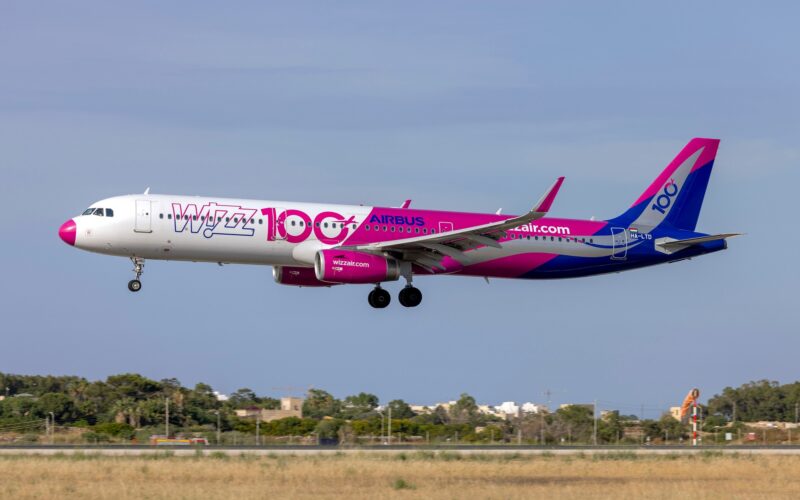Wizz Air Forecasts Strong Growth with Expected $952 Million to $1 Billion in FY2024 Earnings

Wizz Air, which announced that it ended FY2023 with a net loss, expects to experience an upswing of up to €985 million ($1 billion) in the next financial year, as the airline looks to return to profitability.
Despite a net loss of €535 million ($575.8 million) in FY2023, which ended on March 31, 2023, the low-cost carrier said that it expects to end FY2024 with a net profit of between €350 million ($376.6 million) and €450 million ($484.3 million). As such, the necessary upswing would be between €885 million ($952.6 million) and €985 million ($1 billion).
“F23 was a year of significant growth for the business, with our key operational and financial performance metrics moving in the right direction as we transition into the post-COVID era,” said József Váradi, the Chief Executive Officer (CEO) of the Wizz Air Group. According to Váradi, “fuel price increases and structural capacity issues at airports remained features throughout the year, but we are mitigating these through decisive actions which helped to improve ex-fuel cost performance”.
The CEO pointed out that its “profitable growth across our core” networks, including Central and Eastern Europe, delivered record-breaking profits of €3.89 billion ($4.1 billion) and a cash balance of €1.5 billion ($1.6 billion).
“We are now well placed to continue to drive profitable growth through the rest of the decade and beyond,” concluded Váradi.
The focus for the next financial year will be to reduce unit costs, meaning that Wizz Air aims to increase capacity, measured in Available Seat Kilometers (ASK) to grow by 30% Year-on-Year (YoY), with an average load factor of 90%, and achieve better aircraft utilization than during FY2020. The average gauge should grow to 226 seats, compared to 219 seats in FY2023, largely driven by an ever-growing number of Airbus A320neo family aircraft.
Directly addressing costs, the low-cost carrier wants to increase crew productivity by 25% YoY, reduce the fleet age by 11% YoY, and add 23 aircraft to its top 10 best-performing bases across its network. To top it off, Wizz Air plans to reduce disruptions by 38% YoY, mainly by adding resources in order to deal with unforeseen events.
In FY2023, Wizz Air took delivery of 35 Airbus A321neo aircraft, returning nine Airbus A320ceos to lessors. In FY 2024, the company plans to take delivery of 42 A321neos and retire 16 A320ceos from its fleet.
At the end of FY2023, the airline’s total order backlog was 13 A320neos, 305 A321neos and 47 A321XLRs. However, it has mentioned one of its goals for the upcoming year is to ensure the “security of aircraft supply from Airbus”.
